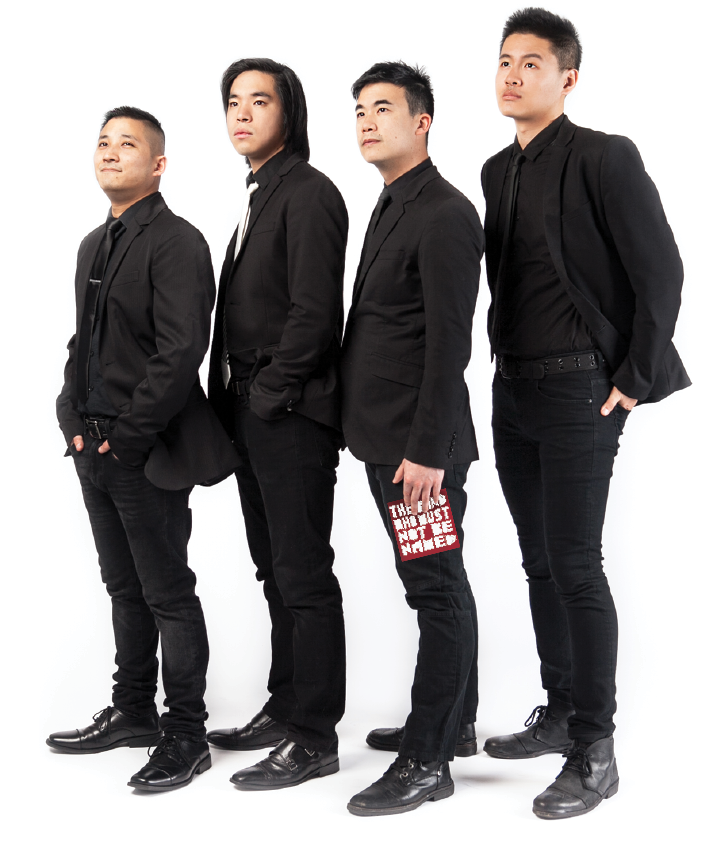Resources
Firm Insights
Are We Fuct? The Supreme Court to Answer this Trademark Question
My favorite scene in the movie National Lampoon’s Christmas Vacation:
 Christmas Eve. A knock at the front door. Clark Griswold (Chevy Chase) opens the door. It’s a messenger delivery of his eagerly awaited Christmas bonus—the one he hopes will be big enough to fund construction of the backyard pool. His extended family gathers around as Clark opens the envelope. He stares at the contents. His wife finally asks, “Clark, what’s wrong. Is it bigger than you expected? Smaller? What is it?” After a pause, Clark mumbles, “It’s a one-year membership in the Jelly-of-the-Month Club.” Goofy Cousin Eddie (Randy Quaid) breaks the silence, cheerfully announcing,
Christmas Eve. A knock at the front door. Clark Griswold (Chevy Chase) opens the door. It’s a messenger delivery of his eagerly awaited Christmas bonus—the one he hopes will be big enough to fund construction of the backyard pool. His extended family gathers around as Clark opens the envelope. He stares at the contents. His wife finally asks, “Clark, what’s wrong. Is it bigger than you expected? Smaller? What is it?” After a pause, Clark mumbles, “It’s a one-year membership in the Jelly-of-the-Month Club.” Goofy Cousin Eddie (Randy Quaid) breaks the silence, cheerfully announcing,
“Clark, that’s the gift the keeps on giving the whole year.”
While I confess that trademark disputes heading toward the Supreme Court have not funded construction of my backyard pool either, they have certainly been the gift that keeps on giving the whole year. Indeed, one year ago this week, I posted a blog entitled “Make America Naughty Again: The Risk of Risque Trademarks”, which had followed upon a post on the same topic a year earlier, entitled “Is Your Brand Naughty or Nice? The New Santa at the Trademark Office“—both on the same theme and, in fact, on one of the same cases.
But first, some background on this gift that keeps on giving: Section 2(a) of the Lanham Act (15 U.S.C. § 1052(a)), states that a federal trademark registration shall be refused if it: “consists of or comprises immoral … or scandalous matter; or matter which may disparage … persons, living or dead, . . . or bring them into contempt, or disrepute . . .”
The Battle of the Band: Matal V. Tam
The “disparagement” portion of that section was the primary focus of my post last year, in which I discussed the Supreme Court’s decision in Matal v. Tam.
That case involved the Trademark Office’s rejection of an Asian-American music band’s application to register their name, THE SLANTS.
The ground for rejection: that “slants” was a disparaging term for Asians (not unlike “heeb” for Jews or “dago” for Italians). Simon Tam, the band’s lead singer, appealed that denial to the federal court, which ruled that the disparagement clause of Section 2(a) was an unconstitutional “viewpoint” regulation in violation of the First Amendment’s Free Speech Clause—a ruling subsequently affirmed by the U.S. Supreme Court.
The Battle of the Brand: Andrei Iancu v. Erik Brunetti
Meanwhile, as I pointed out in last year’s blog post, another trademark dispute had also apparently worked its way through the system, this one over the denial of federal registration for the trademark FUCT, a clothing brand founded back in 1990 by American artist and designer Erik Brunetti. While the SLANTS case involved the “disparagement” clause in Section 2(a), the FUCT case involved the “immoral/scandalous” clause.
In rejecting the FUCT application, the Trademark Examiner relied upon and quoted—believe it or not–the Urban Dictionary’s definition of that word, which, the Examiner claimed, “shows this wording is the ‘past tense of the verb fuck. Also used to express a general state of incapability.’ Therefore, the word FUCT is scandalous because it is disparaging and a total vulgar (sic). It is unregistrable.”
On Brunetti’s appeal of that rejection, the Federal Circuit Court, relying heavily on the Supreme Court decision in the SLANTS case, found that the immoral/scandalous trademark ban was an equally unconstitutional content-based regulation under the First Amendment.
I assumed, naively, that the FUCT case was outside the realm of the Jelly-of-the-Month Club, and thus wrapped up last year’s post with some ruminations on the Federal Circuit’s concession that the trademark was “vulgar” and its concern that “we are not eager to see a proliferation of such marks in the marketplace.”
Indeed, as I pointed out, in the aftermath of that FUCT ruling there were already 90 new federal trademark applications that featured the more traditional spelling of that word. (For the curious among you, that number has now nearly doubled, including such gems as CLUSTERF*CK, CALM THE F*CK DOWN, and WAKE THE F*CK UP.)
And then, with a paragraph of advice to those seeking such registrations, I moved on.
The Battle Continues: The Trademark Trial & Appeal Board
Ah, but guess what? The Trademark Trial and Appeal Board did not move on. Instead, it sought review by the Supreme Court, arguing that the prohibition on registration of “immoral” and “scandalous” marks is “viewpoint neutral” and therefore does not suffer from the same First Amendment problems as the prohibition on disparaging trademarks. And in a surprise move, the Supreme Court announced that it will hear that appeal.
The reaction of many in the legal community: What the fuct? Does this mean that the Supreme Court sees a distinction between the “disparagement” clause struck down in the SLANTS case and the immoral/scandalous provision at issue in the FUCT case? It’s certainly possible. For more than half a century the law has been settled that “obscenity is not within the area of constitutionally protected speech or press,” Roth v. United States, 354 U.S. 476, 492-93 (1957), and thus the Justices could be more skeptical of First Amendment arguments directed at the immoral/scandalous provision of Section 2(a). Moreover, the Supreme Court that will decide this case has two Trump-appointed justices not involved in the SLANTS case: Gorsuch and Kavanaugh.
What the FUCT does that mean for Trademarks?
The easiest route for the Supreme Court is to simply affirm the lower court’s ruling striking the immoral/scandalous provision of the Section 2(a). But if instead it overrules the lower court and revives the immoral/scandalous ban, it might just enroll trademark practitioners around the nation in a new Jelly-of-the-Month Club.
How so? Because the borderline between a disparaging mark and an immoral/scandalous mark is by no means clear—and thus there will be a gray zone where certain terms could be deemed disparaging but not immoral/scandalous, or vice versa. Trademark attorneys representing an applicant along that border will have the creative opportunity—indeed, the obligation—to argue that the trademark at issue is far more disparaging (and thus registrable) than it is scandalous.
Accordingly, for some lucky trademark lawyer out there somewhere, a reversal of the FUCT case may yet provide funds for that outdoor swimming pool—and perhaps a holiday gift subscription to the Jelly-of-the-Month Club for every member of her law firm. Stay tuned.
The choice of a lawyer is an important decision and should not be based solely upon advertisements.
Let's Work Together
If you have questions, we’re ready to help you find the answers.
Newsletter Sign-up
Join our mailing list and stay up to date with Capes Sokol!
By clicking the “Subscribe” button you
agree with our Terms and Conditions.


